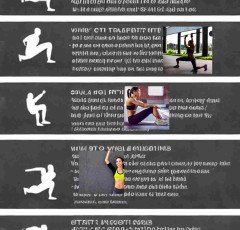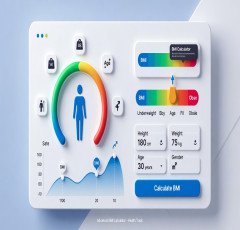
Ways to relieve stress

In today's fast-paced world, stress is a typical occurrence, so it's important to discover strategies to reduce it for the sake of our mental and physical health.
Here are few efficient techniques for reducing stress: -
Deep Breathing
Shallow breathing is a common symptom of stress. Deep breathing exercises might assist you in unwinding and calming your nervous system. Sit or lie down in a quiet area, take a few calm, deep breaths through your nose, and let your abdomen expand. After a little period of holding, slowly exhale through your mouth. For a few minutes, keep doing this while concentrating just on your breath and letting go of all other thoughts.
Meditation and mindfulness practices can help you become more in-the-moment with your thoughts and feelings without passing judgment. Find a calm setting, close your eyes, and concentrate on the here and now. You can utilize guided meditation CDs to help you or focus on your breathing or a particular sound. By ending the loop of worry and rumination, mindfulness can help people feel less stressed.
Exercise
Engaging in physical exercise is a great method to let stress and tension out. Exercises that involve movement, such as jogging, yoga, dance, or even brisk walking, might cause the release of endorphins, which are known to naturally improve mood. Exercise also gives you a chance to remove stressors from your head and concentrate on your body's motion.
Establish a Connection to Nature
Being in nature has a relaxing influence on the body and mind. Being outside can lower stress levels and foster a sense of peace, whether you're taking a stroll through the park, going on a hike through the mountains, or simply sitting by the beach.
Take Part in Hobbies
Having interests and engaging in enjoyable activities can serve as a stress reliever and a creative outlet. Engaging in enjoyable activities, such as reading, playing an instrument, gardening, or painting, might help you forget about pressures and improve your general well-being.
Social Support
Talking to friends or family members during stressful times can be immensely calming. A sense of community and social support helps spread the load of stress. Sometimes, just expressing your emotions to someone who would listen without passing judgment can have a big impact.
Laughter is an excellent stress reliever. Spend time with those who make you laugh, watch a hilarious movie, or tune into a comedy podcast. Endorphins are released when you laugh, which might make you feel happier and more relaxed.
Progressive Muscle Relaxation (PMR) is a technique for releasing physical stress that involves first tensing and then relaxing various muscle groups. Consciously contracting and relaxing each muscle group as you move up your body, beginning at the bottom with your toes. This method can encourage profound relaxation and lessen muscle tension brought on by stress.
Aromatherapy
Aromas with relaxing effects include lavender, chamomile, and eucalyptus. To create a relaxing ambiance in your living area or during relaxation techniques, think about utilizing essential oils or scented candles.
Reduce Your Screen Time
Constant exposure to screens can increase anxiety and tension. To encourage better sleep and lower stress levels, think about taking regular breaks from electronics, especially before bed.
Writing down your thoughts and emotions in a journal can help you process emotions and gain perspective on trying circumstances. You can freely express yourself and monitor your development as a stress manager over time by keeping a journal.
Healthy Eating
Limit your intake of processed foods, sugar, and caffeine, which can all increase stress. To nourish your body and mind, choose a balanced diet that is high in fruits, vegetables, whole grains, and lean proteins.
Practice thankfulness
Developing a thankfulness attitude will help you to turn your attention from worries to the positive aspects of your life. Make it a practice to think about your blessings each day, whether they are a stunning sunset, a helpful friend, or a minor accomplishment.
Set Boundaries, To avoid overcommitting oneself with obligations and responsibilities, learn to say no and set boundaries.
Finding the method that most appeals to you is crucial because different techniques work for different people. Combining different techniques can result in a more thorough strategy for stress reduction. Do not be reluctant to seek help from a mental health professional if stress becomes persistent and uncontrollable.
Yoga and Tai Chi
Both yoga and tai chi are age-old arts that incorporate breathing exercises, mindful movement, and physical activity. These exercises can ease tension and promote relaxation while enhancing flexibility, balance, and mental clarity. Regular yoga or tai chi sessions help promote a higher level of inner tranquility and wellbeing.
Progressive desensitization
If you consistently feel overwhelmed in particular circumstances, try exposing yourself to those stressors progressively in a supportive and regulated way. You can eventually develop resilience and lessen your stress response by doing this.
Get Enough Sleep
Not getting enough good sleep can make stress worse and make it harder to deal with problems that arise every day. Create a soothing nighttime routine, stick to a regular sleep schedule, and make sure your bedroom is a restful place to sleep.
Practice Mindful Eating by paying attention to the flavors, textures, and aromas of your food while you eat it. You can enjoy your meals more completely and avoid overeating as a result of stress-related emotional eating by practicing mindful eating.
Throughout the day, take short pauses to refuel if you're working or studying for a long time. A mental reset and stress reduction can be achieved with even a little five-minute pause to stretch, go for a stroll, or close your eyes.
Guided Imagery
With the use of your imagination, you can create soothing and tranquil scenes such as a tranquil beach or a lush forest. This method can help you relax and psychologically get away from stressful situations.
Practice acceptance
Stress can occasionally result from our resistance to particular circumstances or consequences. Unnecessary stress can be reduced by learning to accept things that are out of your control. Give up the things you can't change and concentrate on what you can.
Playing with pets can cause the production of oxytocin, a hormone that fosters feelings of bonding and lowers stress. Examples of this include playing with a dog or petting a cat.
Volunteering or helping others can give people a feeling of purpose and fulfillment while also taking their minds off of their own problems, which reduces stress.
Spend Time with Positive People
You can significantly reduce your stress levels by spending time with positive people. Social support can act as a stress-relieving buffer and enhance general wellbeing.
Practice time management, Being overburdened with obligations and tasks is a common source of stress. Establish realistic goals, order work according to importance, and divide projects into smaller, more manageable chunks to develop efficient time management skills.
Limit Your News Consumption, Constantly hearing stressful news can make you more stressed out. While it's crucial to keep informed, be careful how much news you consume and take pauses when necessary.
Join a group that does laughter yoga, or try watching humorous movies online, for some laugh therapy. A unique and enjoyable technique to relieve stress and foster joy is through laughter therapy.
Take Warm Showers or Baths, Warm water has a calming and relaxing effect. Taking a bath or shower might help you relax and relieve tension in your muscles. Participate in Breathing Exercises, In addition to deep breathing, try box breathing, 4-7-8 breathing, or alternate nostril breathing. These methods can aid in stress reduction and nervous system regulation.
Establish a Relaxation Area
Set aside a space in your home as a place to unwind, and furnish it with cozy furnishings like pillows, soothing smells, and soothing music. When you need a minute to yourself, retreat to this area.
It's acceptable to occasionally experience it because it's a natural part of life. The secret is to learn effective stress management techniques so that it doesn't overwhelm you or negatively impact your health. You can live a more balanced and tranquil existence by adopting these diverse stress-relief practices into your daily routine. Consider obtaining professional assistance to explore coping mechanisms catered to your unique requirements if stress persists and interferes with your ability to go about your everyday activities.
Cognitive restructuring is a process that entails recognizing destructive thought patterns and changing them with more constructive ones. Challenge illogical beliefs and concentrate on practical and upbeat viewpoints.
Engage your senses to create a relaxing environment with sensory relaxation. To create a quiet environment, you can play relaxing music, utilize dim lighting, get a soothing massage, or take in the fragrance of scented candles.
Practice Graded Exposure
If you're dealing with a particular stressor or anxiety, you might want to think about exposing yourself to it progressively and safely. As you gradually confront the stressor, your anxiety response may lessen.
Visualization, Envision yourself handling stressful situations with ease. When confronted with difficult situations, visualization can boost confidence and lessen anxiety.
Use grounding strategies to re-center yourself in the present when you're feeling overwhelmed. To get back in touch with reality, concentrate on your feet contacting the ground, the texture of the things around you, or the flavor of your food.
Limit your intake of caffeine and alcohol. While these substances may offer momentary solace, overindulging can make stress and anxiety worse. Choose water or herbal teas as healthier substitutes.
Disconnect from Technology
Give your computer, iPad, and phone regular breaks. Technology withdrawal can help with sensations of connectivity fatigue and information overload.
Progressive Art, Take part in artistic pursuits like painting, drawing, or making. The act of creating art for yourself can be therapeutic and stress-relieving.
Practice Acceptance and Letting Go, Recognize that there are things in life that you cannot control. In order to minimize stress and find calm under uncertainty, embrace imperfections and let go of the urge for constant control.
Reframe Stress as a Challenge, Consider stress an opportunity for development and learning rather than a negative force. You may turn stress into a motivator by redefining it as a task.
Consider adopting biofeedback methods to become more conscious of and in control of your body's physiological reactions to stress. You can learn to control your heart rate, muscle tension, and other biological functions with the help of biofeedback.
Develop Your Spirituality
Take part in activities that are consistent with your spiritual principles, such as prayer, meditation, or going to church. Taking care of your spirituality can give you a feeling of direction and serenity inside.
Take a steady, thoughtful stroll while paying attention to each step and the feelings in your feet to practice mindfulness. You can become more present-focused and less stressed by using this straightforward technique.
Investigate Breathing Methods
Individuals respond differently to various breathing exercises. Try out different approaches to see which ones speak to you the most, then make them a part of your regular routine.
Positive Self-Talk Replace negative and self-critical thoughts with ones that are supportive and kind. Think of yourself as a friend, encouraging and supporting yourself when things get tough.
Spending time in nature is a good idea because it can have many positive effects. Nature's calming influence can lower stress levels whether it's during a trek in the woods, a lunch in the park, or a camping trip in the wilderness.
Spend Time with Animals, Being with animals especially therapy animals can be calming and aid in reducing tension and anxiety.
Listen to instrumental music or peaceful noises that are intended to help you relax. A calm mood can be produced with ambient music, classical music, or nature sounds.
Use Fidget Toys or Stress Balls
Using fidget toys or stress balls can help you relax and give you a physical outlet for your stress.
Emotional Freedom Techniques (EFT), often known as tapping, are acupressure techniques that can be used to relieve stress and eliminate emotional blocks by tapping on specific acupressure sites.
Finding a customised strategy that complements your interests and way of life is crucial because everyone feels stress in various ways. Your mental and physical health can benefit long-term from regular practice of stress-relieving strategies. If stress becomes unbearable or uncontrolled, don't be afraid to ask for help from loved ones, friends, or counselors. Being proactive in managing stress can result in a more balanced and meaningful existence. Taking care of your mental health is a lifelong journey.
Try Tai Chi or Qigong
These ancient Chinese disciplines are similar to yoga in that they mix slow, gentle movements with deep breathing and concentration. They can ease tension, enhance balance, and lessen stress.
Playful activities, such as playing games, swinging on a swing, or flying a kite, might help you feel happier and less stressed by allowing you to temporarily let go of your adult duties.
Use tension-Relieving Apps
You can control your tension by using one of the many mobile applications available. These apps frequently provide tools for tracking and managing stress levels, guided meditations, and relaxation techniques.
Discover cognitive behavioral therapy (CBT), CBT is a treatment strategy that emphasizes recognizing and challenging unhealthy thought patterns and replacing them with more beneficial ones. Stress and anxiety can be effectively managed with its help.
Try acupuncture, Acupuncture is a traditional Chinese medicine that involves inserting fine needles into particular body sites in order to release tension and increase the flow of qi.
Savor the Moment, Take part in activities that help you focus entirely on the here and now, such enjoying a good meal or taking in a stunning sunset.
Adult Coloring Books, Due to its capacity to reduce tension, adult coloring books have grown in popularity. You can unwind and concentrate by coloring as a form of meditation.
Practice autogenic training, a technique for deep relaxation that involves repeating specific words or phrases that cause various portions of your body to feel warm or heavy.
Participate in Random Acts of Kindness: By helping others without expecting anything in return, you can reduce stress and feel happy and fulfilled.
Make a stress-relief toolbox by assembling all of your preferred stress-relieving methods and resources in one location. You can consult your toolbox when you're feeling anxious and select a strategy that speaks to you at that specific time.
Confront perfectionism by accepting the notion that imperfection is acceptable. Set reasonable goals for yourself and acknowledge all of your successes, no matter how minor.
Investigate Progressive Exposure
If you suffer from specific phobias or fears, think about gradually exposing yourself to those surroundings or things in order to lessen anxiety over time.
Use heat therapy to relax your muscles and lessen the physical tension brought on by stress by using a heating pad, a warm compress, or a warm bath.
Play calming noises, To induce relaxation, listen to natural sounds like rain or the crashing of the waves, or try white noise makers.
Reduce Clutter and Organize
A tranquil and stress-free atmosphere can result from a tidy and organized surroundings. Spend some time organizing your space and bringing harmony into it.
Participate in Hiking or Nature Walks, Spending time in nature and exercising can be a relaxing method to decompress and lower stress.
Sign up for a Support Group: Sharing your experiences with like-minded people can help you cope with challenges and offer emotional support.
Create a peaceful sleep ritual, To tell your body it's time to relax, create a peaceful sleep ritual. To encourage restful sleep, stay away from screens and stimulating activities just before bed.
Practice self-compassion
Be kind and understanding to yourself, especially when you're under stress. Don't be hard on yourself and keep in mind that everyone has struggles.
Use guided imagery to aid in falling asleep and having a more comfortable night's sleep. Before bed, listen to guided imagery or relaxation recordings.
Stress is a normal reaction, and on occasion it can even be good for us by inspiring us. However, prolonged and severe stress might have a negative impact on our health. Try out several stress-relieving methods and apply them to your everyday activities to develop a more adaptable and well-rounded approach to managing stress. Don't be afraid to seek professional assistance from a therapist or counselor if stress gets too much for you to bear on your own. Living a happier and healthier life might result from taking proactive measures to minimize stress.
Practice Acceptance and Humility
Recognize that you cannot control everything in life and that occasionally things may not go as you had hoped. Accept that mistakes and disappointments are a normal part of the human experience and embrace humility.
Establish a Calming Bedtime Environment, Turn your bedroom into a peaceful retreat where you may unwind and sleep. To encourage deeper sleep and lessen stress, invest in comfortable bedding, utilize soft lighting, and maintain a pleasant temperature in the room.
Develop Emotional Detachment, When dealing with difficult situations, try to take a step back emotionally so that you may approach the issue with more objectivity. It can be beneficial to tackle stressors with emotional detachment.
Reading fiction or partaking in other escapism-promoting activities, such as watching a movie or playing video games, might offer a momentary respite from pressures.
Practice Resilience-Building Activities
Take part in endeavors that positively challenge you, such as picking up a new hobby or talent that calls for perseverance and effort.
Set regular relaxation times, Time Allocate a certain amount of time each day for rest and self-care. Depending on your schedule, it could last for 10 minutes or an hour.
Avoid overloading yourself with impossible ambitions by setting realistic ones. To alleviate stress and preserve a sense of accomplishment, set reasonable and feasible goals.
Recognize and Honor Even tiny Successes
Take the time to recognize and honor even tiny successes. Your drive and self-esteem may increase if you acknowledge your efforts and progress.
Practice Be mindful when speaking with people by being totally present and involved. Empathetic answers and active listening can improve interpersonal relationships and lessen stress.
Play therapy is something you can do
Play isn't just for kids; adults can also gain from it. Playing and being creative can be helpful ways to let off steam and express emotions.
Spend Time with Pets, Spending time with pets might help you feel calmer and less stressed. They can offer a great deal of consolation because of their unconditional affection and company.
Make self-care a priority, Include self-care in your daily schedule. This involves taking care of your diet, getting adequate sleep, staying hydrated, and doing things you enjoy.
Develop your 5-4-3-2-1 technique
The five things you can see, the four things you can touch, the three things you can hear, the two things you can smell, and the one item you can taste are all part of this grounding practice. It eases tension and aids in bringing you back to the present.
Use Stress-Relieving Toys, Playing with kinetic sand, stress balls, or sensory toys can all help you relax by stimulating your sense of touch.
Take part in bioenergetic activities to release tension and stress that have built up in your body. Bioenergetic exercises mix vocal expression, breathwork, and physical movement.
Utilize affirmations in your daily life to strengthen your sense of resilience and value. Regularly tell yourself things that will make you feel good.
Enjoy Aromatherapy Baths
To create a calming and aromatic experience that can aid in relaxation, add a few drops of essential oils to your bathwater.
Practice laughter yoga, Yoga breathing techniques are combined with laughter exercises to create laughter yoga. It may be an enjoyable and playful method of stress relief.
Investigate Art Therapy, Use numerous artistic mediums to convey your feelings and thoughts in a unique way. The use of art therapy can be a powerful tool for reducing stress and fostering mental health.
Practice Mindful Eating, While you are eating, pay attention to the flavor, texture, and sensations of each bite. You can enjoy your meals more and avoid overeating as a result of stress by practicing mindful eating.
Self-care is a continuous discipline, not a one-time event. Assess your stress levels frequently, and change your stress-reduction techniques as necessary. Be kind to yourself and give these methods some time to work. You'll eventually create a unique set of stress-reduction strategies that will enable you to deal with obstacles in life more nimbly and resiliently.























































































 Smart Doorbell
Smart Doorbell  Artificial Intelligence
Artificial Intelligence  Unreal Engine 5 For Beginners Learn The Basics Of Virtual Production
Unreal Engine 5 For Beginners Learn The Basics Of Virtual Production  SEO Checklist
SEO Checklist  Acer Laptop
Acer Laptop  Favorite Company (Cuelinks)
Favorite Company (Cuelinks)  BEST SELLER TOP10
BEST SELLER TOP10  Unlimited access to classes on illustration, photography, design, film, music
Unlimited access to classes on illustration, photography, design, film, music  Top Rated From Amazon
Top Rated From Amazon  Best Selling Books
Best Selling Books  Hot Bags For Pain Relief
Hot Bags For Pain Relief  SOFAS
SOFAS  Creative Brief For Video Shoot
Creative Brief For Video Shoot  Best Sellers On Amazon
Best Sellers On Amazon  Best Robotic Vacuum Cleaners
Best Robotic Vacuum Cleaners  Graphics & Design
Graphics & Design  RPM 3.0
RPM 3.0  Only For The United States
Only For The United States  Hello Theme
Hello Theme  Best Home Appliances
Best Home Appliances  The Click Engine
The Click Engine  One World Collection
One World Collection  ASUS Laptop
ASUS Laptop  1150+Trendy kids coloring pages Bundle
1150+Trendy kids coloring pages Bundle  Online Marketing
Online Marketing  NordVPN
NordVPN  Online Technology Classes
Online Technology Classes  Sennheiser
Sennheiser  NordLocker
NordLocker  TitTok Revolution
TitTok Revolution  Women Fashion
Women Fashion  Amazon Best Selling Products
Amazon Best Selling Products  NordPass
NordPass  Men Clothing
Men Clothing  The Secret Email System
The Secret Email System  All Wireless Products
All Wireless Products  ELECTRONIC ACCESSORIES
ELECTRONIC ACCESSORIES  ASPINAL LONDON
ASPINAL LONDON 
















